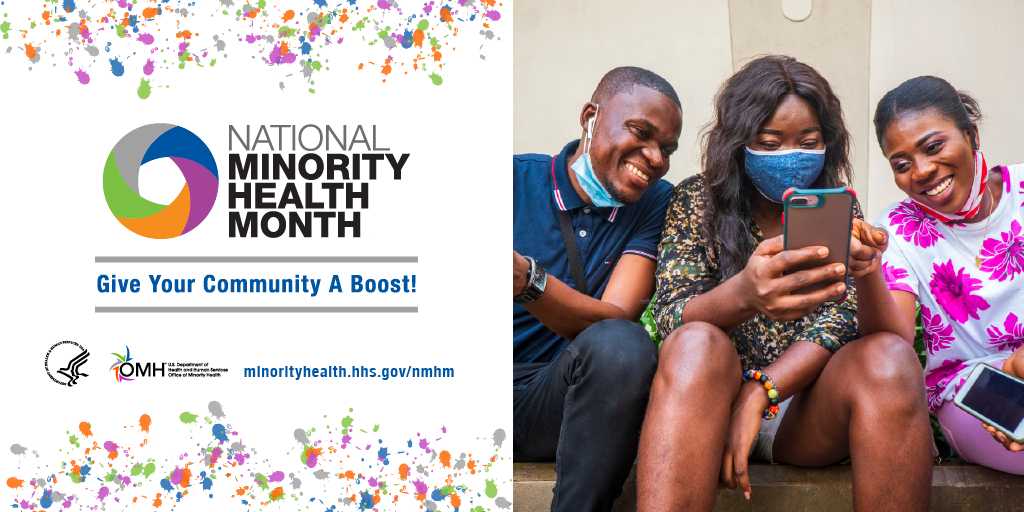
According to the National Institute of Health, National Minority Health Month:
Builds awareness about the disproportionate burden of premature death and illness in people from racial and ethnic minority groups.
Encourages action through health education, early detection and control of disease complications.
While we often hear the phrase “cancer does not discriminate”, experiences of cancer, treatment and outcomes vary widely. Factors such as race, economics and even where a person lives can influence treatment options and survivorship. Those who don’t have access to health care are more often diagnosed with late stage cancer (NIH). Access to care can be limited in rural communities where as those residing in or near urban centers may be able to access cutting-edge treatment and technology.
According to Prevent Cancer Foundation (Marh 2021):
• Black men are more likely to be diagnosed with prostate cancer and more than twice as likely as other men to die from prostate cancer.
• Black and white women have similar breast cancer incidence rates, but Black women are 40 percent more likely to die of the disease.
• Hispanic men and women are twice as likely as their white counterparts to be diagnosed with and die from liver cancer.
• American Indians/Alaska Natives are more likely to die from kidney cancer than other racial/ethnic groups.
• Rates of new cases of lung, colorectal and cervical cancers—which are all highly preventable—are higher in rural than urban areas of the U.S.
• Members of the black and Hispanic communities are less likely to be screened for colon, cervical and breast cance
We have a long road ahead to overcome these health inequities. How can you help? Prevent Cancer Foundation suggests that we encourage our family, friends and colleagues to make cancer screening/prevention a priority. Help with transportation if needed. Check in on a friend. Participate in Minority Health Month Activities. Visit https://www.nimhd.nih.gov/programs/edu-training/nmhm/ and learn how you can “give your community a boost”.
For more information, read Dr. Karen Winkfield’s article about health disparities in cancer care here:
https://ascopost.com/issues/august-25-2020/an-expert-qa-on-cancer-disparities-and-health-equity/
